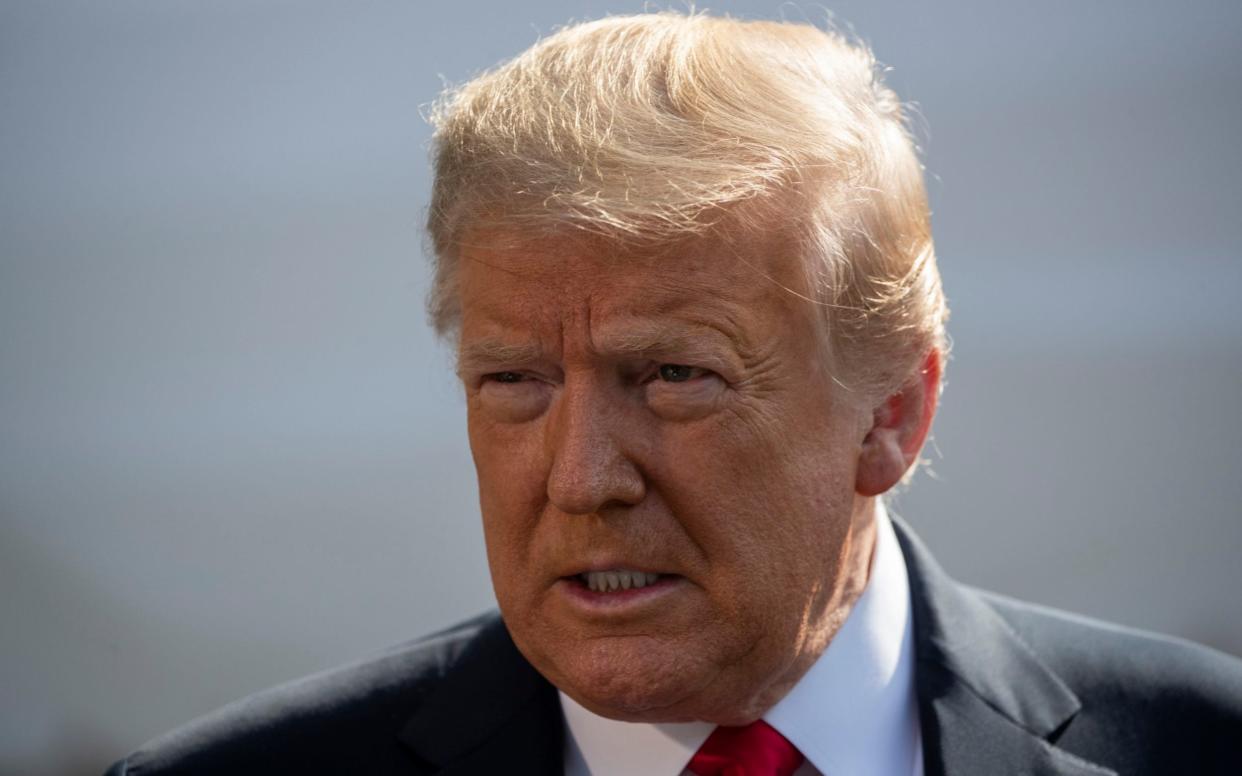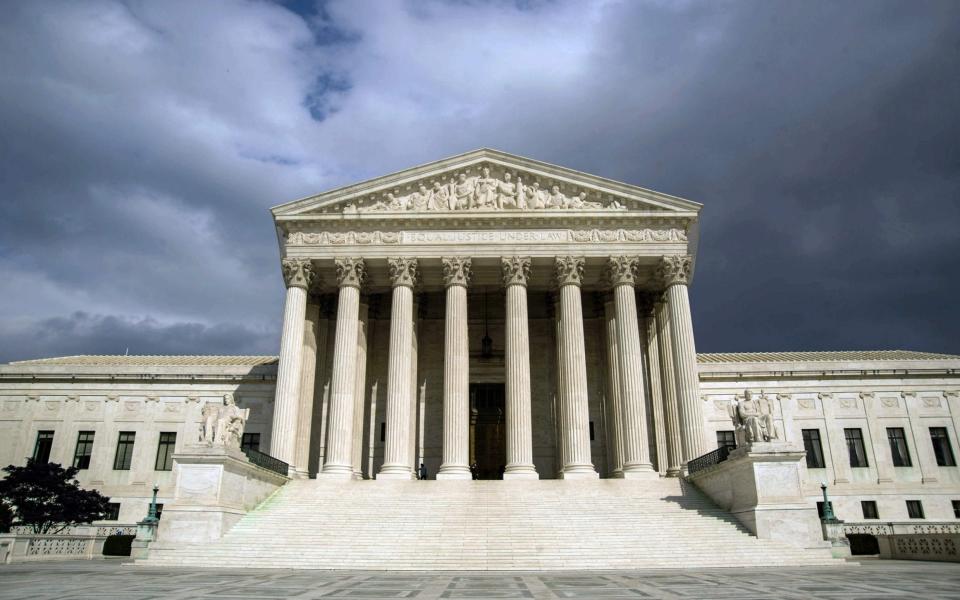Supreme Court says prosecutor can see Donald Trump's tax records, but nothing in public likely soon

The Supreme Court has ruled that a Manhattan prosecutor can get access to Donald Trump’s tax returns, rejecting the US president’s long-held claim to “absolute immunity” on the matter.
However with the case returning to a lower court and any documents obtained being handed to a secret grand jury they are unlikely to be seen by voters before the November election.
In a second case on a related matter, the Supreme Court blocked an attempt by Democratic-controlled congressional committees to obtain Mr Trump’s financial documents, rebuffing the president's political opponents.
In that case the justices argued the subpoenas seeking a wide array of financial records linked to Mr Trump were too broad in scope and were potentially open to abuse in the future.
The twin decisions handed down by America's top court painted a nuanced picture for Mr Trump, who has resisted releasing his tax returns for years, breaking with precedent set by other recent presidents.
The court rejected the claim by Mr Trump’s lawyers that he should not have to hand over documents to a state-led criminal probe while in the White House - a clear defeat.
Yet that case returning to the lower courts and the decision to reject the Democrats’ bid means no tax returns are likely to become public before the election - a short-term victory.
Mr Trump struck a critical tone on Twitter after the decisions dropped, claiming “prosecutorial misconduct” and a “political witch hunt!”
The president suggested a narrower definition of executive powers was being applied to him than his predecessors, writing: “Courts in the past have given ‘broad deference’. BUT NOT ME!”

The two cases ruled upon were both broadly about getting access to financial records linked to Mr Trump but had very different specifics, hence the different decisions.
One case revolved around a Manhattan district attorney called Cyrus Vance’s attempt to obtain eight years of financial records linked to Mr Trump and his firms, including tax returns.
Mr Trump’s legal team argued that as sitting president he had an “absolute immunity” to state criminal proceedings and so did not need to hand over the documents.
The Supreme Court rejected that argument, outlining 200 years of history showing presidents agreeing to give documents in past criminal proceedings.
John Roberts, the chief justice, wrote in the majority opinion: “In our judicial system, ‘the public has a right to every man’s evidence’. Since the earliest days of the Republic, 'every man' has included the President of the United States.”
He added later: “Two hundred years ago, a great jurist of our Court established that no citizen, not even the President, is categorically above the common duty to produce evidence when called upon in a criminal proceeding.
“We reaffirm that principle today and hold that the President is neither absolutely immune from state criminal subpoenas seeking his private papers nor entitled to a heightened standard of need.”
The Supreme Court backed that position by seven justices to two, with both men appointed to the court by Mr Trump - Brett Kavanaugh and Neil Gorsuch - going against the president.
The decision was a clear rejection of Mr Trump’s argument, clearing the way for eighth years of his tax returns to be obtained by the Manhattan prosecutor.
However that does not mean they will be seen in public any time soon. Given this is a criminal probe the documents would be handed to a secret grand jury and may never be released.
Nonetheless Mr Vance issued a celebratory statement after the ruling: “This is a tremendous victory for our nation’s system of justice and its founding principle that no one — not even a president — is above the law."
"Our investigation, which was delayed for almost a year by this lawsuit, will resume, guided as always by the grand jury’s solemn obligation to follow the law and the facts, wherever they may lead.”
The second case involved three House of Representatives committees, controlled by the Democrats, that were seeking different sets of financial documents linked to the president.
The Supreme Court, again by a 7-2 decision, blocked the move, arguing that the subpoenas were so wide in scope that they could set a precedent that could be open to abuse in the future.
With less than 130 days before the election, voters are now unlikely to see Mr Trump’s tax returns through either of these routes before they decide on whether he should have a second term.


